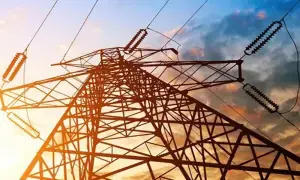Irked by solar power, govt mulls ordinance to revise net metering rates
3 min readThe federal government is likely to issue an ordinance aimed at further regulating net metering in the country because people who installed solar panels on their rooftops have inadvertently caused an increase in the capacity payments to IPPs, a report said on Monday.
The ordinance will also criminalize non-payment of electricity bills, said the report run by a private TV channel.
A senior official confirmed to Aaj News that a proposal on net metering was being discussed.
Pakistan is facing a mounting payment crisis in the power sector mainly due to rising capacity payments to the independent power producers (IPPs). The capacity payments, also called capacity charges, have pushed up power generation costs and consumers have been receiving inflated electricity bills.
At an emergency cabinet meeting on Sunday, Caretaker Prime Minister Anwaarul Haq Kakar was told that the country will be paying a whopping Rs2,000 billion in capacity payments next year.
Under the agreements successive governments signed with IPPs, capacity charges have been fixed against the interest rate and exchange rate. Consequently, the amount has increased over the years with depreciating rupee value and rising interest rates.
However, solar power generated on the rooftops is also being blamed for the rise in capacity charges, according to the report by Geo News.
It said at least 1,000 megawatts of electricity is being generated in excess by consumers using solar panels which they sell to the national grid.
Net metering allows consumers to send their rooftop electricity to the national grid during the day and use electricity from the national grid at night hours.
Consumers who invested millions of rupees in solar systems are not satisfied with the arrangement because they believe the government buys their rooftop electricity at a cheaper rate and sells them the national grid electricity at a significantly higher price.
Also, read this
Free electricity to power sector employees costs Rs13b to taxpayers
K-Electric team taken hostage as it tries to remove meter over non-payment
However, the federal government is not happy either. It unsuccessfully tried to lower the net metering power tariff in February 2023 to Rs9 from the current rate of 19.32 per kilowatt hour. In February 2023, when the change was struck down by Nepra the government was selling its national grid electricity at Rs30 per kilowatt hour or unit. The price has increased since then.
Now the government is likely to act on the issue by promulgating an ordinance.
The government believes the 1,000 megawatts of excess energy generated by rooftop solar panels costs it more than the Rs19.32 per unit it pays to net metering consumers because it also pays a significant amount to the IPPs in the capacity payments for not buying the same 1,000 megawatts from the power generation companies.
Sardar Moazzam, MD of the National Energy Efficiency Authority told Aaj News that currently, this is only a proposal.
He said the world is using green energy and energy as alternatives and it was the future.
Meanwhile, the government is also preparing to deal with the possibility of non-payment of electricity bills by consumers, who are up in arms against inflated bills they received in August.
Pakistan has witnessed nationwide protests against inflated electricity bills for four consecutive days.
There were calls for non-payment of electricity bills until the government lowered the tariff.
For the latest news, follow us on Twitter @Aaj_Urdu. We are also on Facebook, Instagram and YouTube.



























Comments are closed on this story.